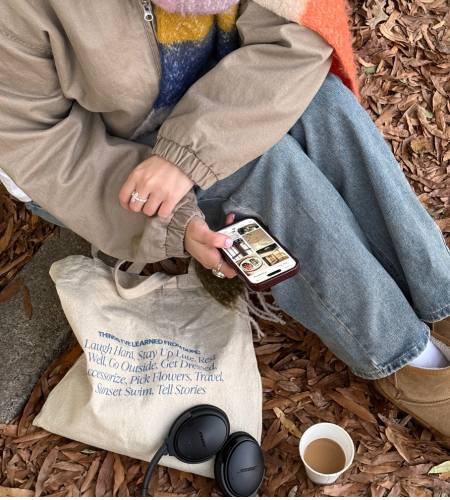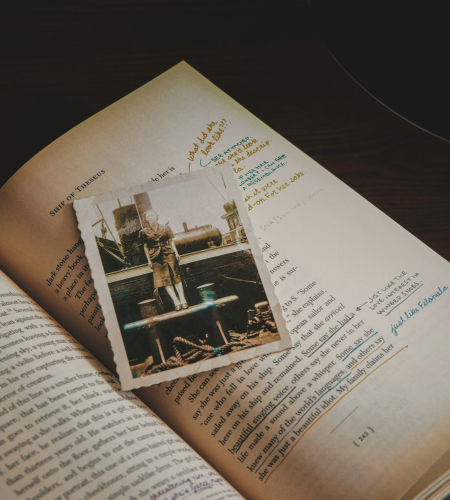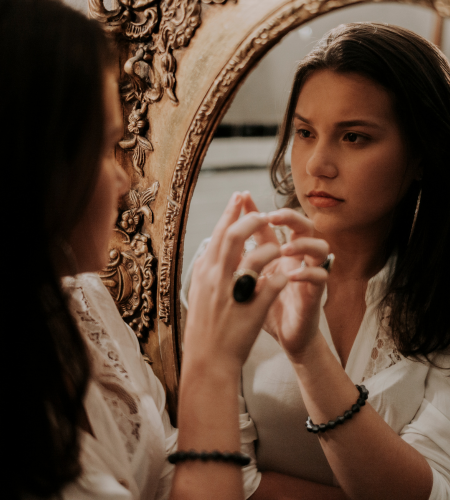
Table on contents
Common misconceptions about meditation?
10 Benefits of Meditation: Mind, Body, Soul
What happens when you meditate
What do you think about when you meditate
Meditation has become a lot more mainstream in the last 10 years. Though it’s increasing popularity, there is still a lot of confusion about what meditation is and isn’t, how to meditate, and the reasons to meditate.
Welcome to meditation 101! We are here to debunk some of the common misconceptions that are still circling about meditation, and answer all of your questions in one place so that you can get your meditation practice started today.
Back in college, when the nerves were high and the fear of failure was at the forefront of every anxiety attack, I remember reading an article about the habits successful people have. It was nothing I hadn’t read before - wake up at 5am, get out of your comfort zone, exercise, read, learn time management. Yada yada yada.
One thing did stand out to me, probably because it was an out-of-the-norm suggestion that didn’t fall into the cliche success principles you can recite like the alphabet.
Meditation.

The article said that successful leaders make meditation a priority in their everyday routine.
Reading that in 2022 might not come as a surprise, but in 2012, my first thought was “omg do I have to convert to Buddhism????”
Meditation wasn’t a common topic back then, and was often associated as a practice for hippies or solely for religions like Buddhism and Hinduism. When I first started becoming aware of the benefits of meditation, I signed up for a religion class in college because I thought the only way to meditate was to become Buddhist!
Luckily meditation is a lot more common nowadays and there are more resources out there. However, I’ve noticed that people still have so much resistance towards the practice.
Honestly, I’m not surprised considering when you look up “what is mediation” on YouTube, the first few pages of results are videos of monks sitting cross legged on the top of mountains wearing robes saying OMMMMMMM. While there is nothing wrong with this, it makes meditation feel foreign and strange. Like it’s an outlandish ritual that is out of reach for anyone who doesn’t identify with that way of life.
There are still a lot of misconceptions about meditation, and if you’re one of those people who are saying “I hear about it a lot, but I just don’t want to have an out of body experience where I’m connecting to another dimension”, then I’m here to shine some light on what meditation is and isn’t.
If you’re on the fence and unsure about what meditation is, the reasons to meditate, or how to get started, this guide is for you!
What does meditation mean?
On a general note, meditation means the practice of quieting the mind to achieve inner peace.
As humans, we’re a l w a y s thinking. We are compulsive thinkers. And while thinking is a useful tool when needed, our thoughts are rarely useful. Actually, our thoughts tend to be not constructive because they are often negative.
Psychology 101 says that our thoughts affect our emotional state. And when we have no control over our thoughts, they can lead us into emotional states that are not helpful, and can be harmful to our happiness, mental health, and wellbeing.
Here’s an example if you have no control over your thoughts:
You’re standing in line at the store and someone bumps into you. Your thoughts go from “wow that person just bumped into me” to “that was f*cking rude” to “how dare they disrespect me” and now you’re angry.
Meditation allows you to observe the patterns of your mind without judgment and to train your mind to interrupt thoughts - essentially, attention and awareness training.
So, here’s how that same example may play out for someone who has a meditation practice:
You’re standing in line at the store and someone bumps into you. Your thoughts go to “wow that person just bumped into me”. Pause. “Well, that felt rude, but I have a choice in how I want to react”. Pause. “Maybe it was on purpose, or maybe they just didn’t see me. Either way, I don’t know and I don’t want it to affect my mood so I’m just going to let it go”. And now you can carry on with your day feeling content, happy, or whatever mood you were in previously.
Meditation is like putting the brakes on your thoughts. It creates a separation between you and your thoughts so that you can observe them objectively as opposed to being consumed by them. Over time, it slows down the amount of thoughts that enter your mind as well as the speed at which thoughts enter your mind.
Meditation will help you think less. And when you think less, you become more in control of your emotions and present in your surroundings.
Most importantly, meditation is a practice. Learning to meditate is no different than learning any other skill. It takes time and consistent practice. But I can promise you, the benefits are worth it.
Common misconceptions about meditation
There are a lot of common misconceptions about meditation. People often see meditation as a spiritual practice, reserved for monks and yogis. However, meditation is simply a form of mindfulness, and it can be practiced by anyone.
Another common misconception is that meditation is about clearing the mind. In reality, it's more about focus and being present. It's normal for thoughts to come and go during meditation; the key is to not get caught up in them.
Lastly, people often think that they need to meditate for hours every day to see results. While regular practice is important, even a few minutes of meditation can be beneficial.
Meditation is simply a way of training your mind to focus and be more present in the moment. It doesn't have to be about clearing your mind, and you don't need to be religious to do it.
Anyone can learn how to meditate, and it can be a helpful tool for managing stress, improving sleep, and reducing anxiety. So if you're curious about meditation, don't let common misconceptions hold you back. Give it a try and see for yourself what it can do.
10 Benefits of Meditation: Mind, Body, Soul
As mentioned above, meditation creates a separation between yourself and your thoughts which allows you to relate to your thoughts differently. Because of this, mediation can give you a sense of calm, peace, and balance even in the most stressful moments.
Did that give you enough reasons to meditate?
No? Well, lucky for you, I can write a 15 page Word doc on the benefits of meditation. But to keep you engaged, I’m narrowing it down to only 10 benefits of meditation for your mind, body and soul.
Mind
- Helps with decision making
- Boosts happy thoughts
- Reduces negative emotions
- Sharpens focus
- Helps with stress reduction
- Controls addictions
- Increases mental discipline
- Increases mindfulness
- Helps with decision making
- Improves concentration
- Promotes cognitive flexibility - being able to relate differently to your thoughts
Body
- Increases energy levels
- Reduces pain
- Reduces anxiety
- Lowers blood pressure
- Strengthens the immune system
- Decreases inflammation
- Helps in regulating metabolism
- Regulates hormones
- Improves memory
- Improves sleep
Soul
- Increases imagination
- Enhances self-awareness
- Increases creativity
- Helps gain clarity on your authentic self
- Helps gain new perspectives on stressful situations
- Makes you feel more grateful
- Helps you feel more connected to other’s and the life around you
- Slows down emotional reactivity
- Improves compassion and empathy
- Strengthens your relationship with your intuition
Common types of meditation
There are tons of different types of meditation, and they all serve a different purpose. Below are some of the most common types of meditation. Don’t force yourself to stick to a certain type, especially as a beginner. To get started, pick one or two that seem like they would be a good fit for you and your needs, and then if you’re not feeling it, try another type.
Personally, I alternate between a few different types depending on what I’m needing that day, and how much time I have. If I’m quick on time, I may do a body scan. If I’m feeling judgmental about myself, I’ll do a loving-kindness meditation. And if my brain is particularly spider brain-y that day, I’ll do a guided meditation.
Focused attention
- The most straightforward type of meditation, the best for beginners
- Focuses attention on one object/sensation (usually the breath) to anchor the mind and maintain awareness
- Strengthens the part of the brain used for detecting errors, overcoming impulses, and solving problems
Guided meditation
- Teacher, video, or app guides you through the basic steps of the practice
- Another great option for beginners since you’re being guided on exactly what to do, think about, and where your awareness should go
- Usually consists of the teacher explaining how the mind behaves during the meditation, guides you through the technique, and finishes by suggesting how to integrate the technique into every day life
Body scan
- Designed to sync the body and mind (because usually the body is in one place and the mind is wandering elsewhere)
- Focuses on performing a mental scan of your entire body to bring attention to each body part and sensation
Mantra meditation
- Similar to focused attention, but instead of focusing on the breath, you focus on a mantra
- A mantra is a phrase or a series of words that are repeated
- Mantras have a subtle vibration associated with it that can encourage positive change, boost self-confidence, increase compassion, and help you enter a deeper state of meditation
- Reprograms the way you think and view yourself depending on the phrase you say
- Great if you want to pinpoint a specific problem or area of improvement
For a list of mantras to use, download our list of 150+ mantras on success, positive thinking, anxiety, self confidence, body positivity, and more.
Loving-kindness meditation
- Sends love and positive energy in different directions - to yourself, to a friend, to a stranger, to someone you dislike
- Great if you feel like you have a lot of pent up anger, frustration, or hate
- Increases empathy
- Reduces negative emotions
Open awareness
- Instead of concentrating on something, your attention is open and remains aware of everything that is happening
- Thoughts, feelings, sounds, bodily sensations are all perceived as they happen without judgment
- Involves letting the mind truly rest because thoughts enter and then drift away instead of distracting you and pulling you away from the present moment
- Trains you to let go of your negative thoughts instead of fixating on them
- Prevents you from overthinking and the negative side effects that come with it
Unguided meditation/silent meditation
- Meditate alone, without someone explaining the process
- Involves sitting in quiet and paying attention to the body and thoughts
- May be challenging as a beginner because there is no guidance
Once you become more advanced, you may move into other types of meditation such as vipassana meditation, kundalini, transcendental meditation, sound baths, and chakra meditations.
But for now, stick to the basics to build up the skill!
How to meditate
To a beginner, meditating may seem a lot more intense than it is. But it really is as simple as the 7 steps below! Depending on what type of meditation you’re doing, steps 3-6 may vary, but generally speaking, this is the basis of what mediation is. Keep in mind, practice makes perfect!
Step 1
Find a comfortable place where you can sit without distraction for a few minutes.
Step 2
Sit comfortably. If you’re sitting in a chair, keep your feet flat on the floor and your spine straight. If you’re sitting cross-legged on a cushion, the important thing is to have your knees below your hips. Relax your shoulders and arms, letting your hands rest on your thighs.
Step 3
Close your eyes, get still, and focus within.
Step 4
Focus your attention on your breath or a mantra. If focusing on the breath, feel the breath going in and out of your nose and your chest rising and falling. If saying a mantra, focusing on the words you are saying.
Step 5
Notice thoughts that arise, but don’t attach to them. If you notice your mind thinking, that’s okay! Don’t try to “calm your mind” or fight the thoughts. Just observe the sensations and thoughts, and gently bring your focus back to your technique (your breath, mantra, noting, etc).
Step 6
Continue repeating steps 3-5 for the time you designated. Aim for 2-5 minutes as a beginner, and then work your way up.
Step 7
Give yourself a few minutes to acclimate slowly back into the activities of your day.

What happens when you meditate
Beginners always wonder what meditation feels like. Which makes sense because meditation is always portrayed to be like some foreign practice that takes you into another dimension. (Sort of like the scene in Harry Potter…..I can’t spoil it but if you’ve seen it I know, you know)
I promise, you’re not going to be taken to the other side and not be able to find your way back to reality!
It’s hard to answer this question for 2 reasons. 1. It depends how advanced you are at the practice and 2. nothing really happens when you meditate.
The more you practice meditation, the easier it becomes to quiet your mind and separate yourself from your thoughts. So, meditation for someone advanced may be a state of calmness and incredible presence with little thoughts coming into their mind. Almost like…being awake and breathing but not really thinking.
And back to 2, nothing really happens when you meditate. You’re still you, and you’re still present in reality. You’re just observing your thoughts, and trying your best to let them go.
As you become more advanced, you may get into a meditative state.
I think people associate a "meditative state" with the out of body experience they fear. Fear not though because a meditative state really is just an extended period of stillness where you are the observer of your thoughts that leads to a calm, soothing, inner peace.
It’s similar to a runner’s high. Runners may experience a brief, deeply relaxing state of euphoria that brings on a sense of extreme joy or delight. The act of running fully consumes the runner and there’s a moment of not caring about anything else because they’re so in the zone.
A meditative state is similar to the runner’s high euphoria where it can lead to an experience of just being, where there is so much space between your divine being and the things you experience in the physical realm.
There’s really no answer as to how to get into a meditative state. It just takes consistent practice and effort!
What do you think about when you meditate
As a beginner you may be wondering “what do you think about when you meditate”?!?
The answer to that depends on what type of meditation you’re doing (see the list above). If you’re doing a loving-kindness meditation, you may be thinking about what gratitude and love feel like. But if you’re doing an open awareness meditation, you may be thinking about anything that comes to your brain. But instead of attaching to the thoughts, you’re just watching them come and go as if they are clouds in the sky.
Ultimately, the goal of meditation is to stop autopilot thinking by either letting the thoughts come and go or intentionally thinking or focusing your attention on something else.
How long to meditate
There is no hard and fast rule on how long to meditate in each sitting or how long you need to meditate in order to see results. That’s because meditation is a practice, and it’ll be different for everyone based on their current stress level, ability to focus, how advanced they are, and so many other factors.
Someone who has been meditating for years may meditate for 30 minutes, while someone who is just getting started will only be able to for 5 minutes.
Someone who is under chronic stress will need more meditation to achieve calm than someone who is under mild stress.
Someone who has an easier time focusing may be able to get the hang of it and start to see the benefits of meditating quicker than someone who has a difficult time focusing.
There is no “right” and “wrong” way to meditation because it’s so personalized! My best advice is to start with 2-5 minutes as a beginner, and as you get more practice, check in with yourself and see what you need.
How often to meditate

See above!
A stressful week may mean meditating 3 times a day. Being tight on time may call for 5 minutes only once that day.
It’s really up to you and what fits in with your needs.
If I’m being honest, I’ve never really had a consistent meditation practice. It was always just a tool for me to use as I needed it, and I got more advanced with it over time. This meant that some weeks I would meditate 5 times a week, and other times it was just once.
My biggest piece of advice is not to put expectations on yourself! There are no rules to a meditation practice, and putting expectations on it will only create more resistance towards it.
Best time of day to Meditate
Broken record here, but it’s up to you! The best time of day to meditate is when it fits in with YOUR schedule so that you can consistently dedicate time to your practice. That being said, different times of day do serve different purposes, so if you’re open to exploring, take a look at the benefits below and see what might align with your needs and goals.
Morning
- Grounds you
- Eases you into waking
- Prepares you to be able to quickly access the stillness inside yourself as the day wears on
Mid-day
- Allows the mind to rest
- Sharpens your mind and sense for the afternoon
Late day
- Wind down
- Preparation for sleep
- Way of processing the day’s experiences

Tips on how to meditate
- START SMALL!! (Sorry, all caps is necessary here) If you get too ambitious and try to meditate for 20 minutes right off the bat, you’re going to disappoint yourself. And disappointment as a beginner will feel like failure, which will make you give up before you even start
- Expect to think. Your mind is going to have a lot of thoughts popping in and out. This is normal!
- Get comfortable before you start. Nothing’s worst than starting, getting in the zone, and then feeling like you need to move and have to refocus all over again.
- If all else fails, return to your breathing. And repeat.
- Try a variety of meditation types, videos, audios, teachers, and apps to find what resonates with you. This may be a little bit of a process, but it’s worth it! If you’re listening to something that you’re not into, find a new one. There are thousands of meditations out there, I know you’ll find a few you like!
- Create a beautiful meditation space at home that makes you feel safe and inspired
- Be kind and compassionate with yourself - it’ll take time to master, but don’t get discouraged!
- Let go of the “all or nothing” mindset - just because you haven’t gotten the hang out it right away doesn’t mean you need to give up
- Choose a time of day that works for you - even if it’s a different time every day.
- Don’t be afraid to use guided meditations - it doesn’t make it any less of a meditation.
- Use meditation music to keep you focused.
- Use a mantra. You can download our mantra freebie for some ideas!
- Do a brain dump and write out everything on your mind before sitting down to meditate. This might help slow your thinking when you’re trying to meditate.
- Use crystals or mudras for added benefit.
- Track your progress! This may be helpful for times you get discouraged
Where to find meditations
You can meditate on your own without any audio or with just meditation music. But if you’re looking for a guided meditation (which I recommend for beginners), there are lots of options out there. With meditation becoming more and more popular, meditation audios are becoming more accessible. Here are a few options to get you started.
Free meditations
- InsightTimer - In my opinion, the top best free meditation app! There are thousands of guided meditations from hundreds of different teachers, as well as soundscapes and customizable meditation timers
- Youtube. Just search for a meditation on the topic you’re looking for. I can guarantee you’ll find hundreds.
- Smiling Mind
- UCLA Mindful
- Healthy Minds Program
Paid meditation apps
(some of these have some free content in the app)
I’m so glad my 19 year old, nervous-for-the-rest-of-her-life-self spent that morning googling about successful habits, because it introduced me to meditation.
Meditation has been one of the most life changing tools for me, and is something I fall back on weekly. I promise if you stick with it and find what works for you, your needs, your goals, and your schedule, it’ll be one of the biggest tools you carry in your self-care toolbox.
If you’re a newbie and ready to jump into meditation, download our free What Type of Meditation Should I Do quiz below to guide you on what type of meditation you’re needing!
Happy meditating, friends! And remember, practice over perfection 🙂







+ view comments . . .
+
view comments . . .
-